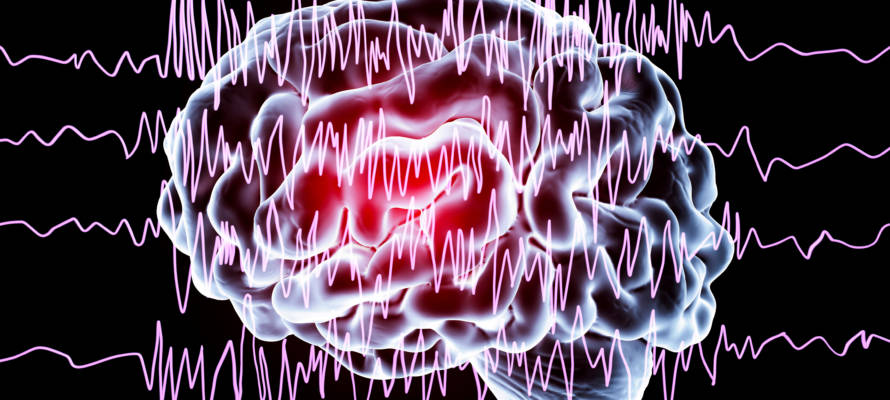The wearable device developed by Ben-Gurion University can generate an advanced warning about an upcoming seizure that can be sent to a smartphone up to an hour prior to its onset.
By TPS
Researchers at Ben-Gurion University of the Negev (BGU) have developed the Epiness, a first of its kind device for detecting and predicting epileptic seizures based on machine-learning algorithms.
The wearable device can generate an advanced warning about an upcoming seizure that can be sent to a smartphone up to an hour prior to its onset.
Epilepsy is a highly pervasive, and at times debilitating, neural disease. Up to 30% of patients do not adequately respond to anti-epileptic drugs and live under constant fear of impending seizures. For such patients, a seizure prediction device could offer a substantial improvement in the quality of life, enabling them to avoid seizure-related injuries.
Current seizure alarm devices can detect a seizure in real-time but are unable to provide advanced warnings of impending seizures.
Epiness is a seizure prediction and detection device that is based on a combination of EEG-based monitoring of brain activity together with proprietary machine-learning algorithms.
The device combines a wearable EEG device with software that minimizes the number of necessary EEG electrodes and optimizes electrode placement on the scalp.
The sophisticated machine-learning algorithms are designed to “filter noise” that is not related to brain activity, extract informative measures of the underlying brain dynamics, and distinguish between brain activity before an expected epileptic seizure and brain activity when a seizure is not expected to occur.
“Epileptic seizures expose epilepsy patients to various preventable hazards, including falls, burns and other injuries,” said Dr. Oren Shriki, of the Department of Cognitive and Brain Sciences at BGU. “Unfortunately, currently there are no seizure-predicting devices that can alert patients and allow them to prepare for upcoming seizures. We are therefore very excited that the machine-learning algorithms that we developed enable accurate prediction of impending seizures up to one hour prior to their occurrence.
“Since we have also shown that our algorithms enable a significant reduction in the number of necessary EEG electrodes, the device we are developing is both accurate and user friendly. We are currently developing a prototype that will be assessed in clinical trials later this year.”
The new algorithm was developed and tested using EEG data from a large dataset of people with epilepsy that were monitored for several days prior to surgery. The patient data were divided into short segments that were either preictal (pre-seizure) or inter-ictal. Several machine learning algorithms with differing complexities were trained on pre-allocated training data comprising 80% of the initial EEG data, and their prediction performance, as well as electrode-dependent performance, was assessed on the remaining 20% of the data.
The algorithm with the best prediction performance reached a 97% level of accuracy, with near-optimal performance maintained (95%) even with relatively few electrodes.
The system was out-licensed for further development and commercialization to NeuroHelp, a startup company that was recently founded by BGN Technologies, the technology transfer company of BGU and Dr. Oren Shriki, and NeuroHelp’s scientific founder.
REBUILD ISRAELI FARMS DESTROYED BY HAMAS - PLANT TREES!
ISRAELI FARMERS DESPERATELY NEED YOUR YOUR HELP
Hamas tried to destroy everything. Terrorists murdered 1200 innocent Israelis. Join us in planting 12,000 trees of life to honor the victims. Send blessing to the People and Land of Israel.
“…I will ordain My blessing for you…” (Leviticus 25:4,21)
JOIN OUR CAMPAIGN TO PLANT 12,000 NEW FRUIT TREES ACROSS THE LAND OF ISRAEL!




